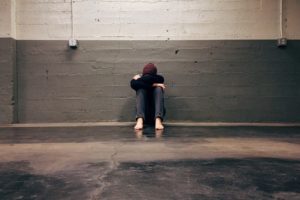Addiction is one of the most common problems not only in America but also in the entire world.
According to an estimate, around 4,35,000 Americans under the age of 12 are consuming Heroin. Around 4.3 million people abuse prescribed opioids every year.
These are extremely terrible facts and evoke grave concerns.
This very data delineates the decadence in society. There is a dearth of sensitivity for people and that might be one of the many reasons behind the exponential increase in Addiction.
In the following Article Opioid Addiction and Possible treatment, methodologies will be discussed thoroughly. A popular Dallas drug rehab center suggests different Opioid Addiction treatment approaches as well and we are here to shed light on all of them.
Factors Responsible For Increasing The Likelihood Of Opioid Addiction
There are certain factors that cause the likelihood of increasing Opioid Addiction in Society. These factors are detrimental to the social order.
1. Family History Of Addiction
If there is some evidence of persons being affected by Addiction. This denotes it may be genetically transformed to posterior generation. If you are addicted to some kind of Opioid it could be that someone from your family developed an addiction to consuming Opioids or any other abusive substances at some time.
2. Lack Of Family Involvement
Actually, a lack of proper monitoring and vigilance results in an increase of Opioid Addiction. Therefore the members of the family must adhere to strictness against using any kind of addictive substance inside the home as well as outside.
3. Peer Pressure
Addiction could catch up as early as in the youthful days. Constant pressure from peers and friends results in the form of increased Opioid Addiction. This one is a strong factor in the increasing number of Addicted individuals in America and other countries.
4. Mental Health Disorder
If you are already affected by a mental disorder, chances are high that you would be resorting to a certain addictive substance out of utter helplessness and frustrations. Your environment could also contribute to the mental health problems that may provoke you to seek opioids.
Opioid Addiction-Overview

In this condition, the addicted individual will procure opioids by hook or by crook and apply it to the body for temporary relief.
Symptoms of this kind of Addiction are:
- Uncontrollable Cravings.
- Irritability.
- Forgetting Responsibilities.
- Mood Swings.
- Physical Agitation.
- Poor Decision-Making.
- Slow Breathing Rate.
- Depression.
- Anxiety.
- Reduced Motivation.
Opioid Addiction: Appalling Facts And Figures
Opioid Addiction slowly is taking gigantic strides in American society and other societies in general. In order to understand the penetration of Opioids, certain facts and data could be considered:
- It is estimated according to the UNO that there are around 0.5 deaths that could be attributed to drug use. Out of these figures, 70% of the deaths result from the consumption of opioids.
- Around 275 million people Globally used Drugs at least once in their lifetime.
- According to another estimation, around 760000 people in the USA alone died from drug Overdose (from 1990 to 2018). Two out of three people died due to the consumption of Opioids in excess.
- According to 2019 data, the number of deaths through consumption of Opioids is 10.1 Million people.
These facts and data are enough to delineate the deplorable condition of American Society in recent times. The social erosion or decadence is getting far too much and there are no signs stopping such downfall.
Treatment Plan For Opioid Addiction

The patient can be treated using Medication, Counseling, and Therapies. There can be strict norms and regulations and the patient can not act to break these under any circumstance. The comprehensive Treatment Plan will also include:
- Medications: usually methadone, buprenorphine, or naltrexone.
- Regular Visits to the Clinics.
- Counseling Sessions.
- Patients’ Commitment to the overall journey of wellness.
- In addition, these patients will be joining Support Groups and partake in different knowledge-gaining seminars.
(i). Support Of Friends And Family
In the overall journey, the support of Friends and Families will be crucial.
They are the ones responsible for anchoring the entire journey of rehabilitation so far as patients are concerned.
By this time the patient will have to keep those vile friends at bay. Otherwise, things would be difficult to manage.
(ii). Medications
There are a few medications that are available for treating Opioids addiction and they include:
Methadone
These are available in liquid forms and could only be used under certified Opioid Treatment Programs.
Naltrexone
This is also an important Drug that could be used only prior to the prescription and observation of Clinical Experts. These could be used only by the patients who have not consumed Opioids for at least 7 to 10 days.
Buprenorphine
These are available in tablet form and can be prescribed only by a doctor and to be used outside the Clinic.
(iii). Counseling
Counseling is an important part of the overall Opioid Treatment. The role of the patient becomes extremely important here.
Through Counseling it is possible to identify the root cause of the development of Addiction. This includes Personal, Social, Economic circumstances, or other conditions.
Counseling improves the feeling of self-worth in the patient.
Under Counseling Patients face common questions Interrogation:
- For how long is the patient using the drugs?
- What other forms of medication are being used by the patient?
- What were the social or financial circumstances?
Post Counseling, a comprehensive medical check-up will follow.
Final Thoughts
As discussed above, treatment of Opioid Addiction, though extremely difficult, is not impossible.
The patient’s willpower plays an important part in the overall treatment. The serious intent of the patient will determine the success rate of recovery.
Both patients, doctors, and family members form a team to work together in this entire journey…So there is hope.
Want to unlock greater wellness?
Listen to our friends over at Wellness Force Podcast to unlock your genetic potential with Dr. Ben Lynch:








 10 Ayurvedic Tips for Eating Right to Stay Healthy
10 Ayurvedic Tips for Eating Right to Stay Healthy